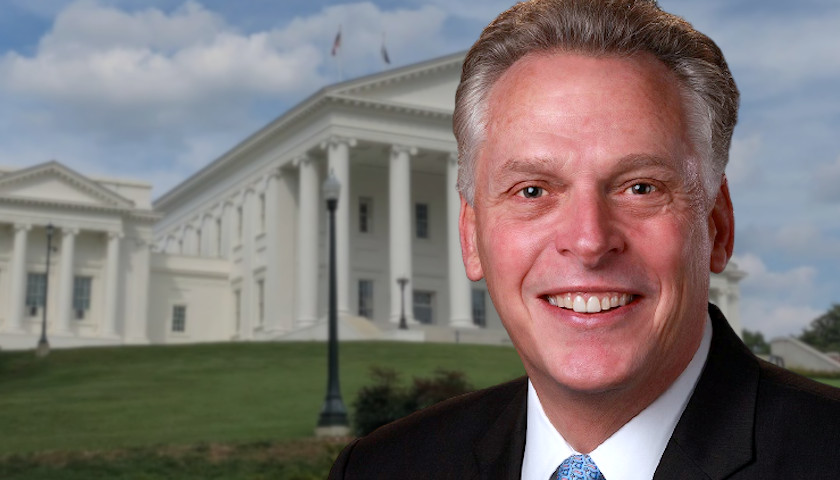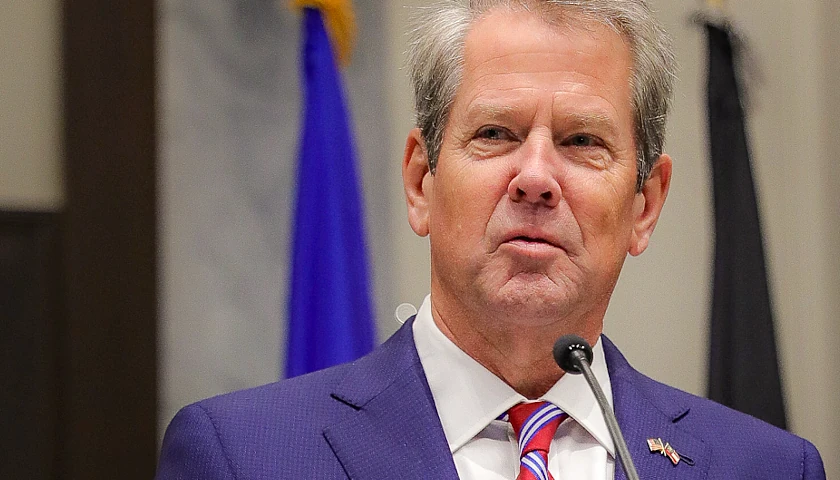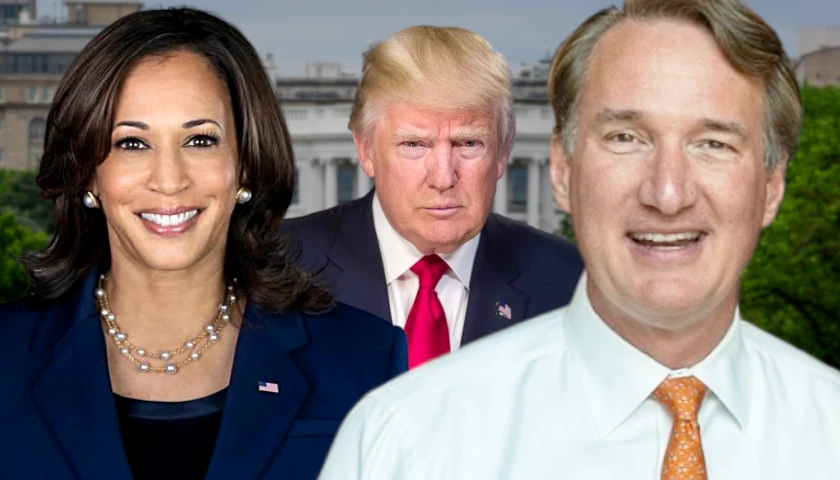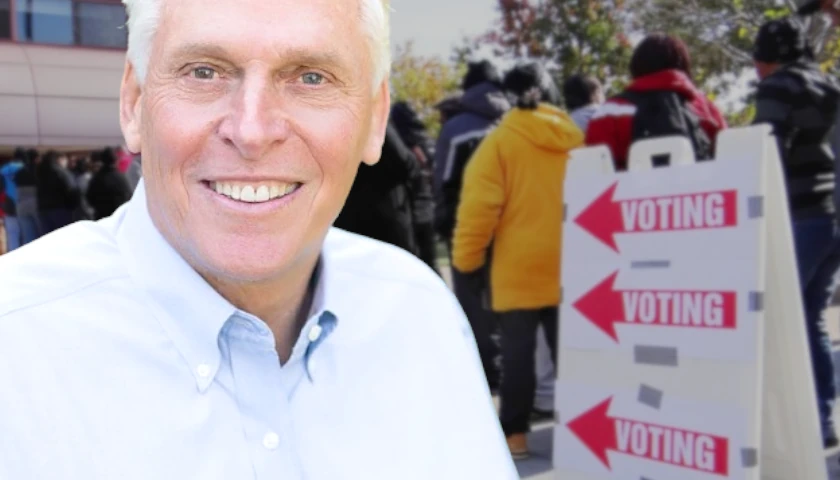Former Governor Terry McAuliffe officially entered Virginia’s 2021 gubernatorial election on Wednesday after months of educated speculation that the long-time Democrat would throw his name into the contest and seek another four years in the Executive Mansion.
McAuliffe, 63, made the announcement during a press conference in front of Miles Jerome Jones Elementary School in Richmond’s southside that was streamed live to his Facebook page.
“I am running for governor again to think big and to be bold and to take the Commonwealth of Virginia to the next level, and to lift up all Virginians,” McAuliffe said during the event.
The powerful Democrat did not speak to the small crowd of media or citizens viewing remotely for very long, but did go over some details of his education plan.
“Today, I am proud to launch my campaign on the plan that I think is most important to every Virginian, and that is education,” McAuliffe said. “To build a strong post-COVID economy, the best workforce in the world, and to create a clear path for the middle class, we need to make an unprecedented investment in education. The time is now to ensure a world class education for every single Virginia child.”
The plan calls for an annual $2 billion investment in education to increase teacher pay, ensure every Virginia student has internet access and every three and four-year-old gets a pre-school education, and, lastly, address inequalities within school systems.
Specifically, McAuliffe promised to raise teacher pay to above the national average for the first time in state history and said that if a person is willing to commit five years of teaching in high-need schools in Virginia, their education will be paid for by the Commonwealth.
At the announcement conference, McAuliffe was joined by Richmond Mayor Levar Stoney, House Majority Leader Charniele Herring (D-Alexandria) and Senate President Pro Tempore Louise Lucas (D-Portsmouth), who will all be serving as co-chairs to the campaign.
As of now, McAuliffe enters a Democratic field of all-Black candidates, featuring Senator Jennifer McClellan (D-Richmond City), Delegate Jennifer Carroll Foy (D-Prince William) and current lieutenant governor Justin Fairfax.
On Tuesday, Carroll Foy said she was stepping down from the House of Delegates to devote 100 percent of her time on the governor’s race and, in anticipation of McAuliffe’s announcement, released a statement criticizing the former governor.
“While I respect Terry McAuliffe’s service, he doesn’t understand the problems Virginians face,” Carroll Foy said. “A former political party boss and multi-millionaire, Terry McAuliffe is simply out of touch with everyday Virginians.”
McClellan put out her own statement on Wednesday, taking a more subtle approach and welcoming McAuliffe to the race. She said: “Today’s challenges require a new approach and a fresh vision to rebuild an economy that benefits all Virginians while addressing healthcare, education, climate and inequity crises.”
From the Republican side, GOP candidate Del. Kirk Cox (R-Colonial Heights) issued a sharp rebuke of McAuliffe’s bid in a statement online. Cox claimed McAuliffe is only running for governor because his presidential campaign failed and needs a platform for the next attempt.
“The people of Virginia deserve better for the next four years than a self-motivated political retread who will be forced to adopt every extreme position of the national Democratic party to get the nomination,” Cox said.
Dave Rexrode, Republican Governors Association executive director, also released a statement – calling McAuliffe “a failure as governor once before.”
McAuliffe has a significant history with fundraising for the Democratic Party and deep ties to the Clintons. During President Bill Clinton’s time in the White House, McAuliffe raised $275 million for various causes.
Later, McAuliffe served as chair of the 2000 Democratic National Convention, was the Democratic National Committee chair from 2001-2005, and eventually co-chaired Hillary Clinton’s failed 2008 presidential campaign.
McAuliffe first ran for governor back in 2009, but lost in the Democratic primary to Sen. Creigh Deeds (D-Bath). In 2013, McAuliffe again ran for the Democratic nomination and was unopposed, going to defeat Republican candidate Ken Cuccinelli by receiving 47.8 percent of the votes, according to Ballotpedia.
Serving as the 72nd governor of Virginia from 2014-2018, McAuliffe was in office when Republicans held a majority in the General Assembly. The prospect of serving while Democrats control the legislature is possible, but will all depend on the 2021 elections when all 100 seats of the House are available and redistricting.
McAuliffe has never won a statewide race when facing challengers in the primary election, which will certainly be the case this year with the three aforementioned Democratic candidates.
So far, McAuliffe’s political action committee, Common Good VA, has raised over $2 million this year, according to the Virginia Public Access Project.
Virginia is the only state in the U.S. that does not allow its governors to serve consecutive turns. A win would mark McAuliffe as the second governor to earn a second term since Mills Goodwin switched parties in the early 1970s and won re-election.
The other declared GOP candidate is Sen. Amanda Chase (R-Chesterfield), who said last week she was going to run as an independent after state Republicans voted to select its nominee through a convention instead of a primary.
Additionally, Sen. Emmett Hanger (R-Augusta) is exploring a bid along with U.S. Representative Denver Riggleman (R-VA-05), Virginia businessman and entrepreneur Pete Snyder is expected to announce soon and socialist Del. Lee J. Carter (D-Manassas) has filed paperwork for a bid.
– – –
Jacob Taylor is a reporter at The Virginia Star and the Star News Digital Network. Follow Jacob on Twitter. Email tips to [email protected].
Background Photo “Virginia Capitol” by Mike Fonseca CC2.0





